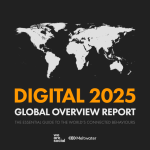By The Malketeer
In the latter half of 2023, Malaysia made more content removal requests to TikTok than any other country, raising concerns about increasing social media censorship aimed at stifling political dissent.
According to TikTok’s biannual transparency report, Putrajaya submitted 1,862 takedown requests, averaging ten daily, which marked a 5.5-fold increase from the previous six months according to a report in The Straits Times (Singapore) of 13 June.
Rising Social Media Censorship
Prime Minister Anwar Ibrahim and his Pakatan Harapan (PH) coalition, who assumed power after the November 2022 general election, oversaw this surge.
Throughout 2023, Malaysia made a total of 2,202 requests, a dramatic increase from the 70 requests recorded in 2022.
By comparison, Australia had the second-highest number of requests in the same period, with 651, while Indonesia and Singapore made 351 and 47 requests, respectively.
TikTok did not specify the nature of the restricted content, only stating that restrictions would be imposed if community guidelines or local laws were breached.
Critics argue that this surge in takedown requests is a tactic to suppress opposition voices, particularly those from the Perikatan Nasional (PN) alliance, which has a strong presence on TikTok.
Political Implications and Historical Parallels
PN’s effective use of TikTok was credited for its unexpected gains in the 2022 general election, significantly increasing its parliamentary seats.
Shadow Minister for Communications Wan Saiful Wan Jan compared the current government’s actions to the 1987 Operation Lalang, which saw over 100 politicians and activists arrested, and media licenses revoked.
“It’s a new Ops Lalang. Anwar criticises what (then PM) Mahathir Mohamad did but now he is doing worse,” Wan Saiful told The Straits Times.
Widespread Censorship Across Platforms
The trend extends beyond TikTok. Meta, the parent company of Facebook and Instagram, reported nearly 8,600 content restrictions in Malaysia in 2023, a significant increase from 553 in 2022.
This rise coincides with growing criticism that the PH-led “unity government” is betraying its reformist platform by curbing free speech.
In May, Reporters Without Borders (RSF) released its 2024 World Press Freedom Index, where Malaysia fell to 107th place from 73rd the previous year.
Prime Minister Anwar dismissed concerns about the downgrade, attributing it to the government’s tough stance against racists and religious bigots.
This response, however, was criticised by civil society organizations for misrepresenting the reasons for the decline in press freedom.
Growing Criticism and Legal Challenges
Several news sites critical of the government were blocked during significant political events, including the run-up to the state elections in August 2023.
Lawyers For Liberty (LFL) highlighted the role of the Malaysian Communications and Multimedia Commission (MCMC) in these restrictions, noting that TikTok videos critical of the government were also blocked.
LFL director Zaid Malek criticized the broad application of the “3R” policy, which targets content related to race, religion, and royalty, to suppress dissent.
Meta’s transparency report for the second half of 2023 revealed that over 4,700 items were restricted in Malaysia, including content violating the Penal Code Section 298A and the Communications and Multimedia Act (CMA) sections 233 and 211.
These laws, which criminalise “obscene, indecent, false, menacing or offensive” content, have been criticised for their vague wording, which many believe allows for governmental abuse.
Ongoing and Future Restrictions
Sources within the social media industry suggest that the trend of increasing restrictions is likely to continue into 2024, with authorities dedicating personnel to monitor and flag offensive content.
“A vast majority are political in nature. Over 90 per cent possibly,” noted a source involved in the content restriction process.
As Malaysia continues to grapple with the balance between maintaining social order and upholding civil liberties, the impact of these censorship measures on the country’s democratic health remains a critical issue for both local and international observers.
Source: The Straits Times (Singapore)
MARKETING Magazine is not responsible for the content of external sites.











